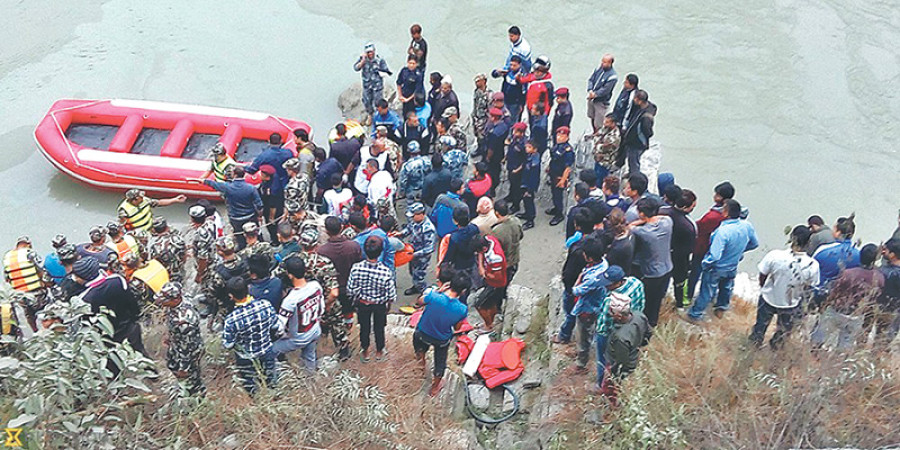Entertainment
Terror on the highway
As I roughly count the number of road accident casualties in the past month, it is alarming how quickly the toll adds up to 50. October was a deadly month to be driving on Nepal’s ‘highways’.
Abijeet Pant
As I roughly count the number of road accident casualties in the past month, it is alarming how quickly the toll adds up to 50. October was a deadly month to be driving on Nepal’s ‘highways’.
Yet the sad part is that it was just another month of many tragedies and little action. Nepal, thankfully, might not have political violence or mass-shootings that are grabbing the headlines around the world, but, make no mistake, our citizens are dying unnecessarily as well.
The 2016 estimates by Nepal’s traffic police put the number of annual road accidents casualties to more than two thousand. That number has been hovering around the same figures for the past decade.
Till date, bodies of 33 people who lost their lives in the October 28 Dhading bus mishap have been recovered. But as the total number of passengers on board is unknown, rescuers and investigators still cannot fully ascertain if anyone else is missing. The driver who was operating the bus is on the run
and speculations are rife about whether he had been drunk during the time of the accident. And though he might be painted as the main culprit behind the tragedy, it would be too simplistic to just brush it off as human error. The problem runs a lot deeper than just one individual lapse behind the wheel.
We have so many accidents making the news that as readers and citizens we have become desensitised to it all. On October 13, a microbus accident in Gulmi claimed six lives on the spot and another five in hospitals to where they were rushed. Just this week, a total of six pedestrians have been mowed down in Morang, Tanahun, Sunsari, and Rupandehi in separate incidents. And we are just skimming the surface, that list is long and harrowing.
A well-planned and efficient system of transportation not only helps move citizens effectively, it also plays a crucial role in expanding commerce and development. Ideally, with healthy completion, manifold entrepreneurs and service providers would compete in the market, driving prices down and increasing the quality of service available to customers. But Nepal doesn’t run under the rules of a free market. With Syndicates—an unholy nexus of business people, politicians and authorities—dictating how vehicles ply on our country’s highways, the citizens have no other choice but to ride along. As a result, the vehicles ferrying passengers are often not in operational condition, they are packed to the brim with commuters and there is no oversight on who is operating, what their experience is or if they are in a condition to be driving.
Similarly, the state of the roads is also to blame behind the accidents. Whenever the closing of the fiscal year approaches, road rollers and dozers come out of the woodworks and do little more than patchwork. With rampant corruption rotting the system to the core, road constructions are not about laying out roads that are convenient and durable, they’re about who can profiteer out of the state treasury.
All this takes place as authorities turn a blind eye to the thousands of people who perish on the roads each year. Is it just enough that security personnel arrive to fish corpses out of a river after an accident? Should they not have been taking preventive measures—like ensuring there is no drinking and driving, or that a bus isn’t carrying more than its capacity—in the first place? As long as we take reactive actions against these accidents, nothing will change. We need to be proactive and we need to be proactive now; before another life is needlessly lost on our highways.
Bob Dylan once sang, “How many deaths will it take till they know that too many people have died.” But I think that even one death is one too many. We need to force change immediately—the next casualty, god forbid, might just be someone you love. Nepal’s highways, after all, are akin to playing Russian Roulette, you never know when your own number is up.
Pant is an A-level graduate from Budhanilkantha School




 9.12°C Kathmandu
9.12°C Kathmandu










